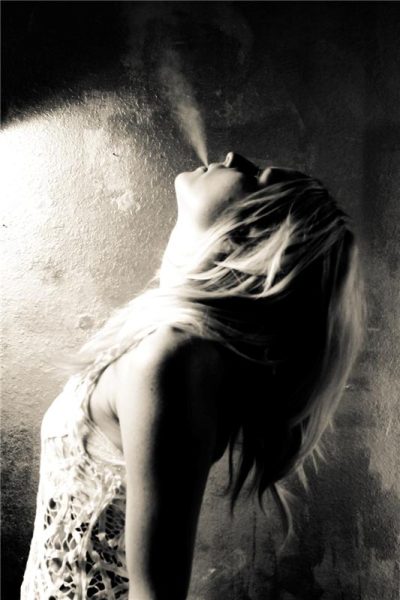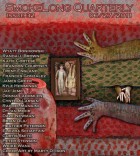As a writer of both poetry and fiction, where do you draw the line between the forms? How do you view “Marbles Loosed” within that distinction?
Well, I think everyone’s free to make this distinction for themselves, but for my own work, I tend to draw the line somewhere around sentences and the rhythm of how I want the reader to read the thing. If I’m making mostly sentences, then I tend to think of it as fiction. If I want to have a ton of control over the rhythm, and work mostly outside the sentence structure, I tend to call it poetry. I think narrative finds its way into both kinds of work for me, so I don’t really make that distinction. “Marbles Loosed” is a story. It’s fiction. I’m sure of it.
The first two lines instantly reminded me of what I love most about your writing: how you move one metaphor (“pearl eyes”) into the next thought (“rub my sandy fingers in them”) seamlessly. Does this occur naturally in your process?
You know, this is embarrassing, but I think I just recently realized how much of my work is made up of stacks of metaphors. My process when I start to work on something is really just making a ton of phrases and images and then trying to connect them with some sort of narrative. †I hardly ever come at a story with an idea in mind, but this one I actually did. †I decided I wanted to try to write a fairy tale of sorts, a lost child story with a modern twist. †So I started with a whole handful of images and phrases, but this time I had to work it around a thematic framework. Most of the time I just see where the language took me.
Upon initial reading, I was impressed with how you used the phrase “I remember” to move the story forward. Do you have any advice regarding incorporating nontraditional transitions?
I don’t know if I have any advice, but I do like to construct narratives through memory. I think a really honest story can come from a character just trying to recall all of their memories around a certain thing or time or place. †And repetition. I love it when used judiciously.
As some readers may know, you blog your rejections. How has this shaped your experience as a writer? And where do you find the accompanying clever photos and captions?
I started that blog because I actually wanted a place to post links to work that was appearing online, and somehow the most and least logical thing I could figure out to temper that vanity was to fill the bulk of the blog with one of the day-to-day experiences of being a writer: rejections. I could have also made a blog about sitting at my computer sneering at the bad sentences I write every day, but rejections have a built-in schedule, so I went with that. I already had a pretty good attitude about it, I think, but if there were any lingering anxieties at the time, they were flushed out quickly. If I get a rejection, it means I can make a post – it’s almost a reward now. I’m not saying I’m never disappointed, but I’m not often surprised when it comes to rejection. I’m surprised by every acceptance, but not rejection. As for the images and captions, I usually Google-image something in the post and then the caption comes out of my messy brain.
Like others, I’m anxiously awaiting your debut novel in 2012. Can you give us a teaser? And do you have any other projects in progress?
The novel, My Only Wife, from Dzanc, is actually built in a similar way to “Marbles Loosed.” It’s a man trying to remember everything about his wife and making sense of the stories he can tell about her. A lot of the sentences start with, “My wife…” I have a poetry collection and a story collection that I’m holding onto for the time being. I don’t know what I’m waiting for really. I’ve sent them both a couple places, but I haven’t really been focusing the effort on trying to find them homes. I’m hoping to focus on another novel manuscript in the next few months. I’ve been writing tiny stories for so long now, we’ll see if I can go long again.


